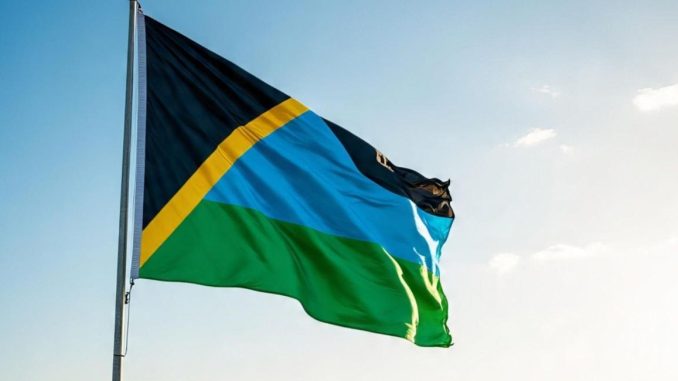
Tanzanian authorities have been accused of killing dozens of people as the post-election protests that erupted after Wednesday’s general election, which has entered its third day, turned deadly.
According to the country’s main opposition party, Chadema’s spokesperson, “around 700” people had died in clashes with security forces, according to the BBC.
Though the figure could not be independently verified, as a nationwide internet shutdown has made communication and fact-checking extremely difficult, the BBC quoted a diplomatic source in Tanzania who said there was credible evidence that at least 500 people had been killed since the protests began.
Since Wednesday, protests have been raging in major cities of Tanzania, with young protesters denouncing what they described as an unfair election in which key opposition figures were barred from running against President Samia Suluhu Hassan.
On Friday, protesters continued to defy official warnings, taking to the streets in Dar es Salaam’s Salasala, Yombo, and Tegeta neighbourhoods.
The country’s army chief, General Jacob John Mkunda, reportedly condemned the protests on state television, saying, “Some people went to the streets on 29 October and committed criminal acts.”
“These are criminals, and the criminal acts should be stopped immediately,” adding that the army had “controlled the situation.”
In response to the unrest, authorities extended a nationwide curfew while downplaying reports of large-scale violence.
However, local sources told the BBC that hospitals in Dar es Salaam had been overwhelmed by casualties since Thursday.
“It’s been nonstop since yesterday,” a hospital source said, adding that morgues in several hospitals were reportedly full.
Human rights groups and journalists have been unable to verify the full extent of the killings due to the ongoing internet blackout.
The United Nations has expressed the alarm over reports of civilian deaths.
“We are alarmed by the deaths and injuries that have occurred in the ongoing election-related protests in Tanzania.
“Reports we have received indicate that at least 10 people were killed,” UN human rights spokesperson Seif Magango told Reuters on Friday, urging security forces to avoid using “unnecessary or disproportionate force.”
Diplomatic sources confirmed that ambassadors from several foreign embassies have engaged Tanzanian authorities, calling for restraint in policing the protests.
By late Friday, Tanzania’s electoral commission had released results from about 80 of the country’s 272 regions, with state broadcaster TBC reporting that President Samia’s ruling Chama Cha Mapinduzi (CCM) party was leading.
International observers told the BBC that voter turnout was “incredibly low.” Official results are expected on Saturday.
On the semi-autonomous island of Zanzibar, incumbent president Hussein Mwinyi of CCM was declared the winner with nearly 80% of the vote.
The opposition alleged “massive fraud,” according to the Associated Press.
The unrest has also stranded tourists amid flight cancellations and network disruptions.
Kenyan publicist Anyiko Owoko reportedly described the chaos after finally returning home, saying, “Internet, shops, petrol stations, email, social media, everything was down.
“Total disconnect. No international or regional calls in or out. There were no Ubers or Bolts available because there was no network.”
Protesters accuse the government of undermining democracy after opposition leader Tundu Lissu was jailed on treason charges, which he denies, and another major contender, Luhaga Mpina of the ACT-Wazalendo party, was disqualified from the election.
Sixteen smaller parties, none with significant support, were allowed to run.
President Samia, who became Tanzania’s first female leader in 2021 following the death of John Magufuli, was initially praised for easing political repression.
However, critics say her administration has increasingly targeted opponents through arrests and abductions, raising fears that the country is sliding back into authoritarianism.
Leave a Reply